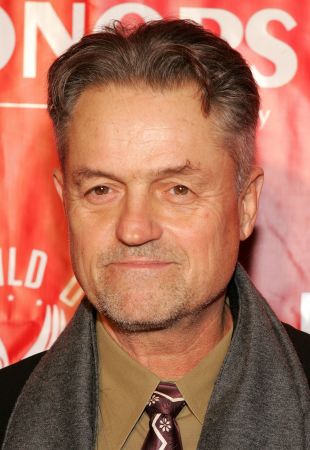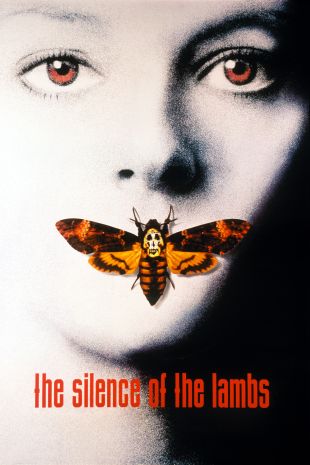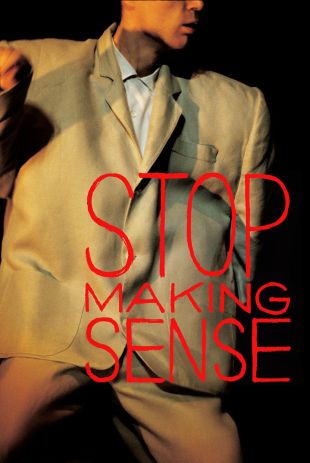Jonathan Demme proved to be that rare maverick filmmaker who managed to find a place for his talents within the Hollywood system while still making movies his own way and on his own terms. A director who invested his characters with an unusual depth and humanity, Demme was unafraid to take on challenging and controversial subject matters in his films, but also knew how to make his stories absorbing and entertaining, and the results have included both box-office blockbusters (The Silence of the Lambs, Philadelphia) and critical favorites (Melvin and Howard, Something Wild).
Born in Baldwin, NY, on February 22, 1944, Demme's mother was an actress, and his father worked in public relations. When he was 15, his family moved to Miami, where his father had landed a job at the Fountainbleau Hotel. Demme's original career goal was to become a veterinarian, and, after working at animal clinics as a teenager, he enrolled at the University of Florida in Gainesville. College-level chemistry, however, proved to be his Achilles' heel, and, realizing animal medicine was not a practical goal, he began searching for a new path. An enthusiastic cinema fan since childhood, he applied for an open position as film critic at the university's newspaper.
After finishing college, Demme continued as a film critic for a small paper in Coral Gables until his father introduced him to flamboyant producer Joseph E. Levine. Levine was impressed with the young man's writing, and, after a stint in the military, Demme was given a job as a publicist in the producer's organization. Over the next several years, Demme worked for several film companies, including United Artists, and continued to write about film and music during a stint in New York, where he helped to compile the score for a low-budget thriller called Sudden Terror. While in London in 1970, a friend from his days at UA recommended Demme as a unit publicist to Roger Corman, then in Ireland shooting Von Richtofen and Brown. The independent producer/director soon gave Demme the opportunity to write a motorcycle picture for him, and Demme teamed up with friend Joe Viola to turn the premise of Rashomon into a biker film; after a few rewrites, Corman hired Demme to produce the film and Viola to direct, and the result was called Angels Hard As They Come. After serving as producer and second unit director on another Corman production, The Hot Box, Demme was given the opportunity to direct a steamy women-in-prison picture called Caged Heat; along with the requisite nudity and violence, Demme inserted a subplot about prisoners being abused through medical experiments.
After two more films for Corman -- the offbeat crime feature Crazy Mama and the revenge thriller Fighting Mad -- Demme was hired to make a film about the then-current CB radio craze. The result was a charming, low-key, comedy drama called Citizen's Band, which won enthusiastic reviews from a number of critics but was a dud at the box office, even after being retitled Handle With Care. But the film's notices were strong enough for Demme to be hired to direct the Hitchcockian thriller Last Embrace, and, in 1980, he landed a project perfectly suited to his style. Melvin and Howard was based upon the true story of Melvin Dummar, who claimed to have once given Howard Hughes a ride and is later named beneficiary of 150 million dollars in a will discovered after the reclusive billionaire's death. While the film was only a modest commercial success, it received uniformly positive reviews. Screenwriter Bo Goldman and supporting actress Mary Steenburgen both received Oscars for their work on the picture, while the New York Film Critics Circle named it the Best Film of 1980.
The warm reception for Melvin and Howard led to Demme's involvement in Swing Shift, a picture about women working in defense plants during World War II. Demme wanted the picture to deal primarily with working women embracing their new freedoms during wartime, but leading lady Goldie Hawn felt the film should focus on her character's relationship with a musician (played by Kurt Russell) while her husband was at war. By most accounts, Demme and Hawn rarely saw eye-to-eye during the production, and he and his editor left the project before the film's final cut was completed. Although Swing Shift proved to be a commercial and critical disappointment, bootleg copies of Demme's edit have circulated among collectors, with many contending his version was markedly superior. The director's next movie was more low-key: a concert film documenting the striking multi-media stage show of the rock band Talking Heads. Stop Making Sense was both a massive critical success and a surprise commercial hit, and it confirmed Demme's fondness for music-oriented projects. He later directed music videos for artists such as Neil Young, Bruce Springsteen, New Order, and Fine Young Cannibals, and helmed another concert film, Storefront Hitchcock, featuring the quirky singer/songwriter Robyn Hitchcock. (Demme later directed two other feature-length documentaries: Swimming to Cambodia, a record of Spalding Gray's acclaimed one-man show, and Cousin Bobby, about the life and work of his cousin, an Episcopal priest and political activist.)
Demme's next two major projects, Something Wild and Married to the Mob, walked a fine line between the endearing and the oddball, and performed well, if not spectacularly, at the box office. But it was 1991's The Silence of the Lambs, a taut thriller with a strong feminist subtext, that propelled Demme into the first rank of American filmmakers, earning him an Oscar for Best Director, among others for Best Picture, Best Actor (Anthony Hopkins), Best Actress (Jodie Foster), and Best Adapted Screenplay (Ted Tally). Demme followed this success with the AIDS drama Philadelphia, another blockbuster and Tom Hanks' first Oscar win. Demme next tackled a controversial adaptation of Toni Morrison's novel Beloved, and then paid homage to the French Nouvelle Vague with a stylish remake of Charade entitled The Truth About Charlie.
When not busy with his own projects, Demme has also served as a producer of other films, including Adaptation, That Thing You Do!, and Mandela. A political activist and collector of Haitian art, he has been married twice, first to after director/producer Evelyn Purcell and later artist Joanne Howard. Demme would continue to direct over the coming years, helming films like Rachel Getting Married, a remake of the Manchurian Candidate, and Ricki and the Flash as well as several documentaries like Jimmy Carter Man from Plains, I'm Carolyn Parker and Justin Timberlake + the Tennessee Kids. Demme died in 2017, at age 73.


